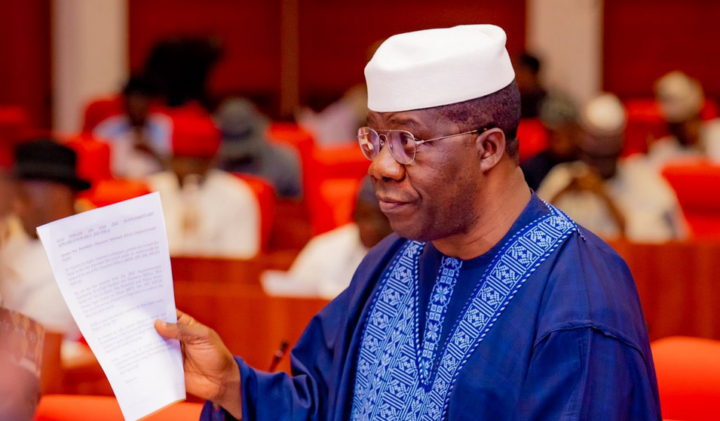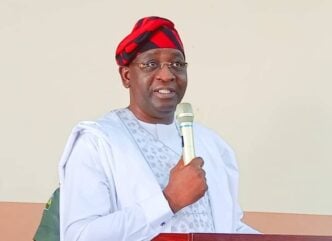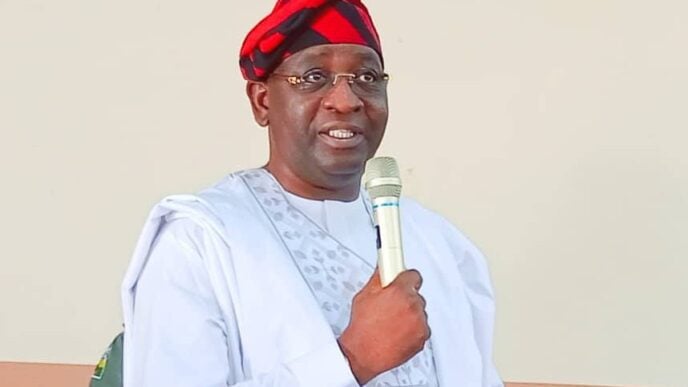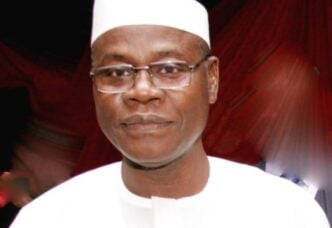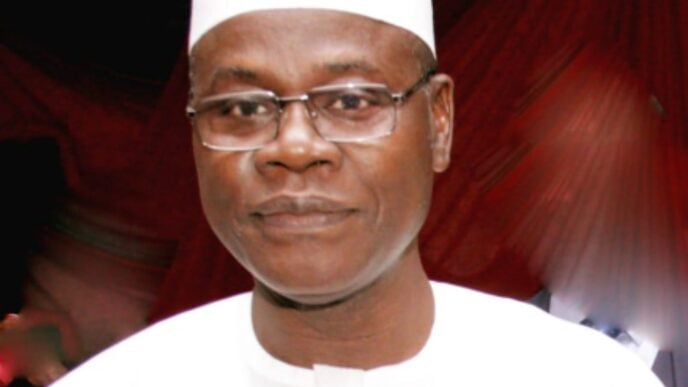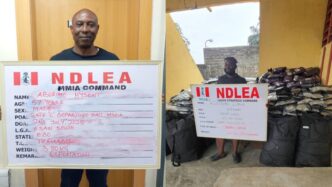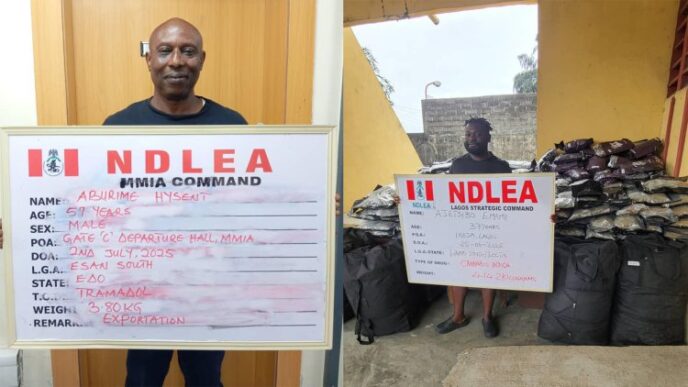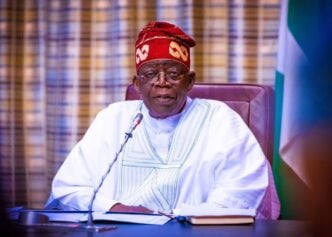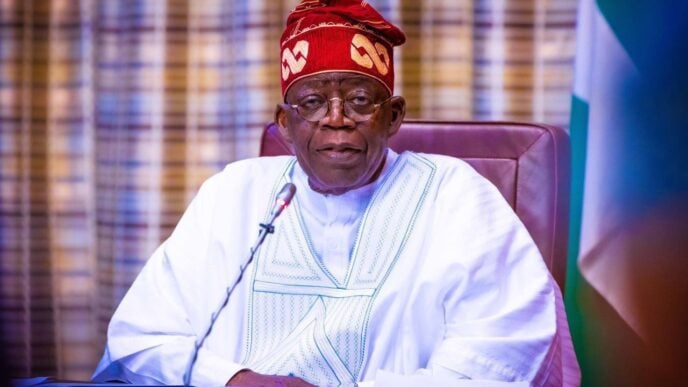Opeyemi Bamidele, majority leader of the senate
Opeyemi Bamidele, the senate leader, says the national assembly will transmit the report of the ongoing constitution review to the 36 state assemblies before December 2025.
Bamidele, who is also the chairman of the senate committee on the review of the 1999 Constitution, spoke on Saturday at the end of a two-day zonal public hearing held at Water Crest Hotel, Ikeja, Lagos.
He said the move is in line with the timetable of the exercise, adding that no amendment can succeed without the endorsement of at least two-thirds of state legislatures.
“We have completed the public hearing; we are now returning to Abuja to prepare our report,” he said.
Advertisement
“Part of our timetable is to have final notifications before the end of the year and transmit our report to all state assemblies.
“This will round off the process of the constitution review.”
Bamidele said the exercise is a reform initiative designed to promote prosperity, improve governance, and ensure sustainable development.
Advertisement
“There is nothing the national assembly can do without a two-thirds approval of all proposals by the state legislatures,” Bamdele said.
“All stakeholders must work with their lawmakers at the state level. We must appreciate the role of state assemblies to ensure the passage of the proposals into laws.
“State assemblies are part of the process. We have been in Lagos state in the last 48 hours, listening to people’s aspirations, concerns, and will.
“All six states in the geo-political zone were represented by their elected representatives. We are in this process together to receive their presentations.
Advertisement
“The state assemblies are already anticipating the report of the constitution review from the national assembly.
“They are not waiting for the report alone. They are also part of the process. I do not envisage any problem from the state assemblies.”
He advised stakeholders seeking special considerations to direct their advocacy to the state assemblies.
“It is not just about them as elected representatives, but as representatives of people who elected them,” he said.
Advertisement
“People should be aware when they are making decisions to be sure that they are also doing so in consonance with the wishes of their constituents.”
Debo Ogundoyin, chairman of the Conference of Speakers of State Legislatures of Nigeria (CSSLN) and speaker of the Oyo house of assembly, called for the devolution of more powers to subnational governments.
Advertisement
Ogundoyin, who was represented by Abiodun Fadeyi, deputy speaker of the Oyo assembly, said state and federal governments should be allowed to legislate on matters such as solid minerals, labour, drugs and poisons, telecommunications, and stamp duties.
“Devolution of powers is key to this ongoing constitutional amendment by devolving key items from the exclusive legislative list to the concurrent legislative list in the interest of all,” he said.
Advertisement
“For instance, the removal of the electricity matter from the exclusive legislative list has significantly transformed many states’ power sectors through independent power supply initiatives.”
He also supported the establishment of state police, citing benefits such as improved local security, decentralisation of federal duties, community policing, increased accountability, and job creation.
Advertisement
“Concerning the state police, all the stakeholders will agree with me that the debate over the establishment of state policing has garnered momentum from both supporters and critics,” he said.
“The potential benefits of state police far outweigh the challenges.
“In essence, what the amendment seeks to address will be the powers, responsibilities, and limits of the state police.
“These should be clearly defined, provide oversight mechanisms to prevent abuse, and design a comprehensive framework for federal and state police to work in harmony to balance power and for effective coordination mechanisms.”
Among those present at the hearing were Olarere Oyewunmi, deputy minority leader of the senate; Oluranti Adebule, chairperson of the senate committee on humanitarian affairs and poverty reduction; Ipalibo Banigo, chairperson of the senate committee on health; Olajide Ipinsangba, chairperson of the senate committee on public procurement; and Adeniyi Adegbomire, chairperson of the senate committee on judiciary, human rights, and legal matters.
